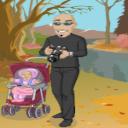Yahoo Answers is shutting down on May 4th, 2021 (Eastern Time) and beginning April 20th, 2021 (Eastern Time) the Yahoo Answers website will be in read-only mode. There will be no changes to other Yahoo properties or services, or your Yahoo account. You can find more information about the Yahoo Answers shutdown and how to download your data on this help page.
Trending News
Suggest a great camera that doesn't blur when you crop a picture?
Even with my 18 mp Fujifilm camera, when I tried cropping a portion of the picture with image software, it got all blurry. I can't stand that and need a great quality camera that won't do this. I'm willing the spend around $350-$450. I don't know much about cameras at all. Please suggest one!
6 Answers
- B.E.I.Lv 79 years agoFavorite Answer
Several things to consider:
1) make sure you are shooting/saving in the largest/finest that the camera can do. Most camera can save in small/medium/large image size and normal/fine/super fine quality.
2) Cropping and leaving it original size should not "blur"' or pixelate the image. Cropping and then enlarging it can. For example, if you crop a 900x900 section out of a 5616 x 3744 and save it as 900x900, then there should not be any ill effect. OTOH...if you save that same 900x900 cropped image as 3,000x3,000 then there will be issues.
3) "Old Dude" is correct. Not all editing programs are equal. For example, some programs do not work as well as others when it comes to interpreting a cameras "raw" file.
4) Remember...garbage in, garbage out. When you are viewing the cropped image, you may just be seeing the original issues with the image have been exasperated. If the original image was not properly focused or there was subject/camera movement, it will be come more apparent when it is enlarged.
5) Sensor density (mp/cm²) can affect image clarity...in other words you can only put so much on your plate, before you make a mess. For example, around 2.9mp/cm² or lower is preferred... on a Fujifilm Z1000, it has a 16mp 6.4x4.8mm sensor for a sensor density of 52.08mp/cm². Now compare that to a Canon 1D Mark IV DSLR...16.1mp, 27.9x18.6mm sensor for a sensor density of 3.1mp/cm² .
The difference between the two is huge.
I would suggest that you visit the local camera shops (not bestbuy/walmart), talk to the people there about your issues and try some of the different cameras out in your budget (bring a couple of memory cards so you can take a couple of shots with different cameras and then look at the results at home). Afterall, it might be your camera OR it could be the photographer.
- joedlhLv 79 years ago
Without being wordy, most likely you have your camera set to a low jpeg resolution. Many cameras come out of the box set at low or medium resolution so that they can be demoed in the store without an SD card and without filling up the on-board memory. Always shoot at your camera's highest resolution. The manual will tell you how to change it.
- 9 years ago
Hello,
Of all the camera's I've researched (and it has been quite a few lol) A Canon 40D seems to be the best in your price range ($400-500USD). If you plan on doing some photography in a lot of different areas: landscape, portrait, night/low light, macro, etc.. I had great success with my 40d. Make sure you have the highest quality settings on your camera.. new or recent and you should get a nice range to get a good crop out of it. All the best.
Source(s): Photographer.. amateur :P - 9 years ago
Is it getting blurry or pixelation? Makes a big difference if you are using the wrong terminology to describe your problem. Upload a sample or send me the file direct and I'll try to help you with it
- How do you think about the answers? You can sign in to vote the answer.
- Anonymous9 years ago
The camera is not your problem. Maybe it's the software. What are you using? Also, always show examples of what you are talking about.
Source(s): 60 years experience as a professional photographer and college photo instructor.






